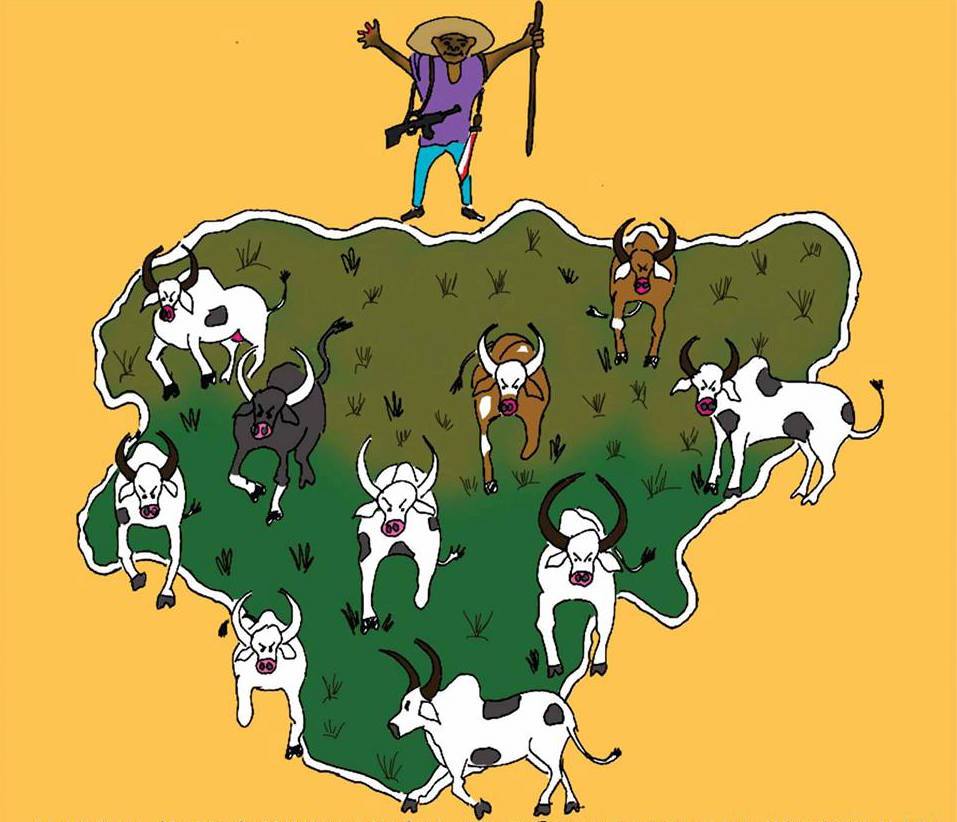
Catch us the foxes, The little foxes that spoil the vines, For our vines have tender grapes. – (Song of Solomon 2:15)
Over 40 people slaughtered by Fulani herdsmen in Enugu (Vanguard, April 2016).
Hundreds displaced in Adamawa as Fulani herdsmen attack two communities (Premium Times, August, 2016).
Tension in Bayelsa over herdsmen attacks (This Day, June, 2016).
Two killed as Fulani herdsmen attack Ekiti community (The Nation, May, 2016).
Fulani herdsmen kill 15 Tiv farmers (The Nation, June 2016).
Again, alleged herdsmen kill 6 in Kaduna Village (Vanguard, 16th August, 2016).
Suspected Fulani herdsmen attack Enugu community, many feared dead (Daily Post, August 2016)
Before the death of Mohammed Yusuf, the founder of Boko Haram, in 2009, the group was just a rag tag Islamic sect with an extreme and inflexible ideology, one that grew into the monstrosity that it became because the government at the time did little too late to check it. This fact is captured in two statements made by two journalists who followed the events closely.
i. “The whole situation seems to be a failure of intelligence, a failure of the security forces to act before matters reached the point that they have now reached.” (Anonymous, Vanguard, July 2009).
ii. “The authorities have been reluctant to deal with the members of the sect because some of them come from rich families with connections to the government.” (Aminu Abubakar, AFP News, July 2009).
…it is time to take decisive action before the crisis begins to grow out of control. Inasmuch as cattle owners and herders have a legitimate right to earn a living, this cannot continue at the expense of human lives and the peaceful coexistence of Nigeria. Appropriate steps must be taken to check this now.
The integrity of a nation cannot be defined without considering adequate security. And it is this lack of security that has been the bane of much of Africa’s development. The buck, I must say, stops at the table of leadership. The two quotes above, by two separate journalists show that much of the security crises we face stem from our refusal or inability to nip imminent threats in the bud. Whether it is Boko Haram or militancy in the Niger Delta, the early signs are always there. We often ignore them to our detriment.
Today Nigeria is beset by agitations on many fronts, and one of them, nipping dangerously and undeterred at the jugular of the nation, is the ongoing serial attacks of marauding herdsmen. And the reason is not farfetched: Boko Haram started as a regional problem that invariably deteriorated to threaten our national existence. Thank God for the present administration that has done much to contain the crisis. What is going on with the herdsmen however is happening everywhere in the country almost at the same time, from the South-East to the North West from South-South to the North Central from the South-West to the Middle-Belt and the North. The whole nation is engulfed by this crisis. And if a crisis starts at this scale, it can only be imagined what it can become, if we allow it.
In February 2016, The Nation reported the former Inspector General of police Solomon Arase as saying “Most of these herdsmen are not Nigerians. They are people from Mali, Chad who came into our system.” Others have said some local chiefs have collected money from the herdsmen. Whatever the case, it is time to take decisive action before the crisis begins to grow out of control. Inasmuch as cattle owners and herders have a legitimate right to earn a living, this cannot continue at the expense of human lives and the peaceful coexistence of Nigeria. Appropriate steps must be taken to check this now.
The time has come when every well-meaning Nigerian has to collaborate to check this menace. Let us begin to place the appropriate value on every single Nigerian life and push back, determinedly, against those who do otherwise.
NIGERIA HAS A GREAT FUTURE.
PremiumTimes
END

Be the first to comment